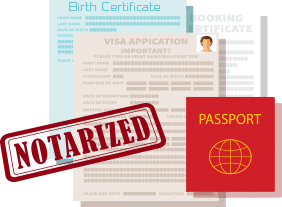
In Ontario, several individuals are authorized to notarize documents. Here are some of the authorized officials who can perform notarial services:
- Lawyers and barristers: Any lawyer or barrister in good standing with the Law Society of Ontario has the authority to notarize documents.
- Notary public: A person who has been appointed as a notary public by the Ministry of the Attorney General in Ontario is authorized to notarize documents. Notaries public can be lawyers or individuals specifically appointed as notaries.
- Commissioners for taking affidavits: Commissioners for taking affidavits, also known as commissioners of oaths, are authorized to administer oaths and take affidavits. Many lawyers, as well as certain other professionals, can be commissioners for taking affidavits.
- Justices of the peace: Justices of the peace, who are judicial officers, have the authority to administer oaths and take affidavits.
- Certain other professionals: Some professionals, such as notaries public in other jurisdictions, may also be authorized to notarize documents in Ontario, depending on their specific qualifications and credentials.
It’s important to note that the individuals authorized to notarize documents may vary depending on the nature of the document and its intended use. It’s recommended to consult with the specific authority or organization requiring the notarization to confirm the acceptable authorities in each case.
What kind of documents need to be notarized in Canada?
In Canada, various types of documents may require notarization depending on their nature and purpose. Some common documents that often require notarization include:
- Affidavits: Affidavits are sworn statements or declarations made under oath or affirmation. They are used to provide evidence or information in legal proceedings or administrative matters.
- Statutory declarations: Similar to affidavits, statutory declarations are written statements of facts that are made under oath or affirmation. They are commonly used for various legal, administrative, or regulatory purposes.
- Powers of Attorney: A power of attorney is a legal document that authorizes someone (the attorney or agent) to act on behalf of another person (the donor) in legal, financial, or personal matters. Notarization may be required to authenticate the signatures and ensure the document’s validity.
- Consent forms: Some consent forms, such as those related to travel permissions for minors, medical procedures, or legal agreements, may require notarization to verify the authenticity of the consent.
- Real estate documents: Certain real estate documents, such as deeds, mortgages, and property transfers, may require notarization to establish their validity and to ensure compliance with legal requirements.
- Certification of copies: Notaries can certify copies of original documents, which can be useful when submitting important documents to government agencies, educational institutions, or other organizations.
- International documents: Documents intended for use abroad, such as certificates, diplomas, powers of attorney, or business agreements, may need notarization to comply with the requirements of foreign jurisdictions.
It’s important to note that the specific requirements for notarization may vary depending on the jurisdiction, purpose, and the authority or organization requesting the document. It’s recommended to consult with a notary public or legal professional to determine the specific notarization requirements for your particular document.



 Share
Share Tweet
Tweet Share
Share




Comment